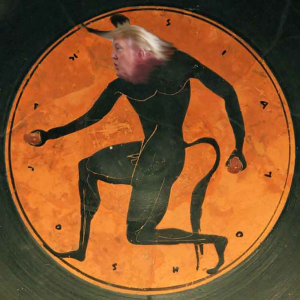 Continuing on with the general theme of motivated reasoning, there are some rather interesting results reported in New Republic, here. Specifically, Ian Anson from University of Maryland, Baltimore County, found that political partisans reinforced their perspectives on the state of the U.S. economy more strongly when they were given “just the facts” rather than a strong partisan statement combined with the facts. Even when the partisan statements aligned with their own partisan perspectives, the effect held.
Continuing on with the general theme of motivated reasoning, there are some rather interesting results reported in New Republic, here. Specifically, Ian Anson from University of Maryland, Baltimore County, found that political partisans reinforced their perspectives on the state of the U.S. economy more strongly when they were given “just the facts” rather than a strong partisan statement combined with the facts. Even when the partisan statements aligned with their own partisan perspectives, the effect held.
The author concludes that people, in constructing their views of the causal drivers of the economy, believe that they are unbiased in their understanding of the underlying mechanisms. The barefaced partisan statements interrupt that construction process, perhaps, or at least distract from it. Dr. Anson points out that subtly manufacturing consent therefore makes for better partisan fellow travelers.
There are a number of theories concerning how meanings must get incorporated into our semantic systems, and whether the idea of meaning itself is as good or worse than simply discussing reference. More, we can rate or gauge the uncertainty we must have concerning complex systems. They seem to form a hierarchy, with actors in our daily lives and the motivations of those we have long histories with in the mostly-predictable camp. Next we may have good knowledge about a field or area of interest that we have been trained in. When this framework has a scientific basis, we also rate our knowledge as largely reliable, but we also know the limits of that knowledge. It is in predictive futures and large-scale policy that we become subject to the difficulty of integrating complex signals into a cohesive framework. The partisans supply factoids and surround them with causal reasoning.… Read the rest



